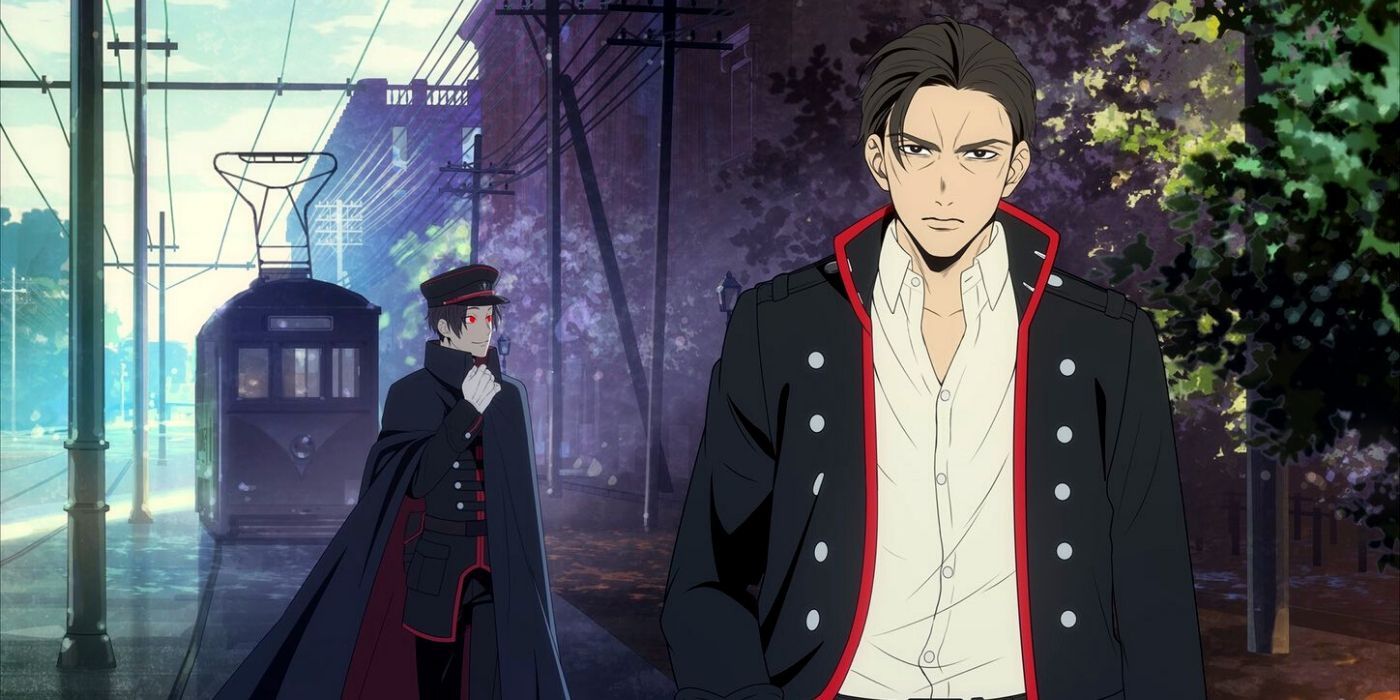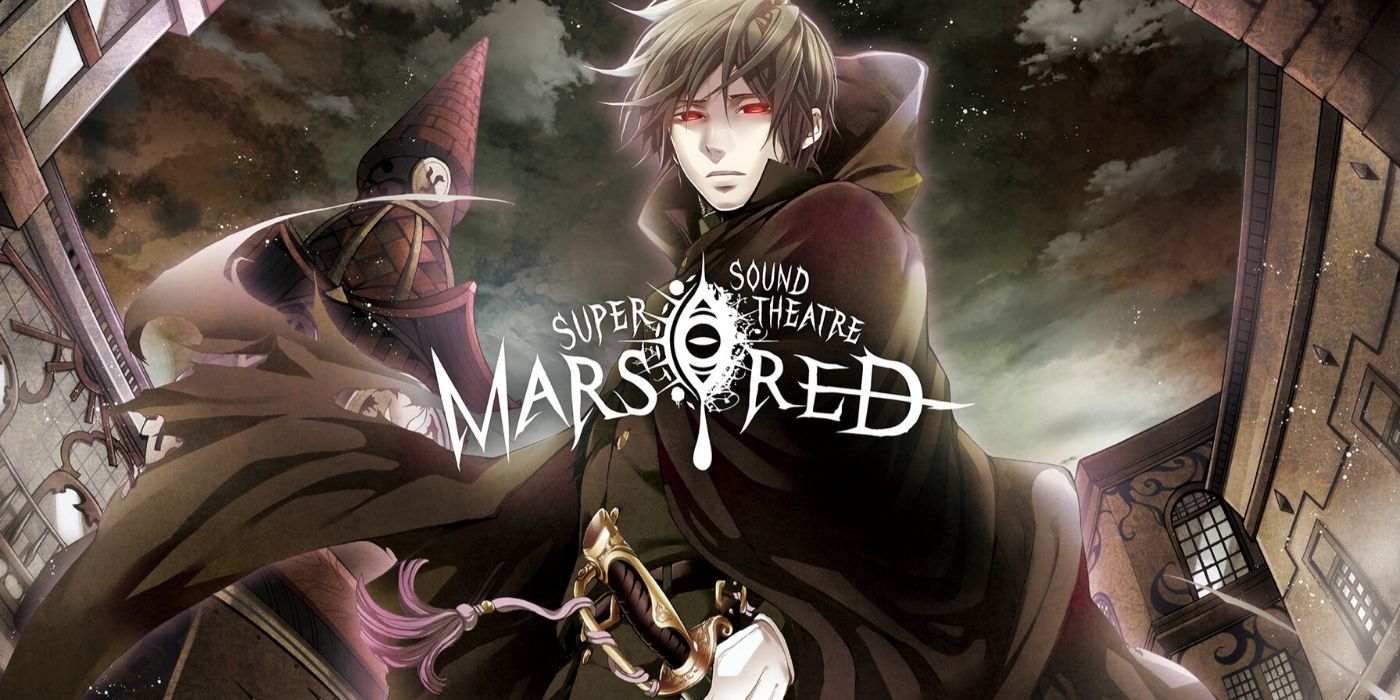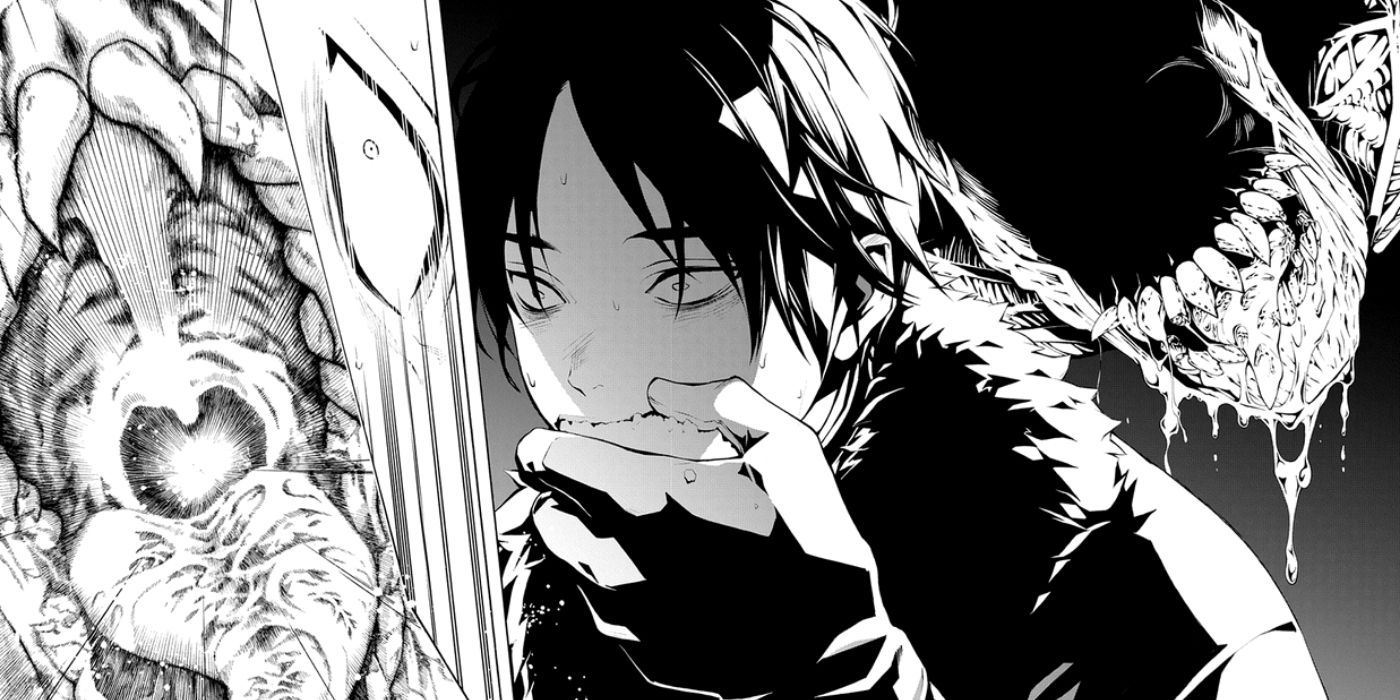Funimation, in collaboration with Yomiuri-TV Enterprise LTD, has an exciting project coming in 2021: the anime adaptation of the acclaimed Japanese stage reading, Mars Red. If that sounds like an unusual source, that's because it is. This will mark the first time an anime is adapted from a dramatic stage play.
Mars Red, by playwright and director Fujisawa Bun-o, takes place in an alternate version of 1923, where vampires exist, but a company has created artificial blood source that they can use to survive -- so far, so True Blood. But with vampire numbers increasing every day, the government decides to reassign Code Zero, a vampiric task force historically focused on information and intelligence, to investigate and quench this breakout before the vampire population tilts society to the point of no return.
The main characters belong to classic ensemble archetypes while remaining quite intriguing: there's Kurusu Shutaro, the rookie and the reader's entry into the universe, Maeda Yoshinobu, the Captain, Yamagami Tokuichi, the street-smart wildcard, Suwa, a grumpy veteran from the Edo era, and Takeuchi, the mad scientist of the group. For those readers too impatient to wait for the anime, Kansai Mag has already started publishing the manga adaptation of Mars Red, introducing all the main characters as well as a glimpse of the universe and the stakes at play.
The general rule of thumb is that most Japanese anime is adapted from a manga and vice versa. The reason for this is that manga already comes with an established fan base, street-recognition value, and an already-developed plot and character designs, which greatly streamlines the development, production and marketing process of an anime -- cutting costs while increasing viewership.
The release of a manga-based anime series usually boosts readership and sales of the original work, too. This affects the international market as well: even the most devoted foreign manga publishers can only afford to translate, print and distribute a small percentage of Japan's yearly output, and even fan translations tend to focus on the series that will get the most clicks, and the point of entry for most Western readers of manga is anime.
But there are some exceptions, like Mars Red, where studios have developed anime based on other media, from movies, articles, books, video games, sports, music groups or even philosophical concepts. Thematically, the closest one to Mars Red would be Shiki, based on Fuyumi Ono's 1998 two-part novel of the same name (although, to be fair, Shiki was made into manga before production started on the anime series). Shiki tackles many of the same elements as Mars Red: an isolated Japanese village haunted by consumptive deaths, vampires slowly overriding the town's population, and the ensuing panic, intransigence and mob mentality that follows these events.
There's also Ergo Proxy, a cyberpunk thriller anime about a semi-robotic society where everyone is born to fulfill a specific purpose, which was directly inspired by philosophy itself. Shūkō Murase, the director, wanted to bring the topics of Gnosticism, existentialism and Descartian theory of the self to a science-fiction detective series. This was a very risky idea that was only able to see the light of day because of the laissez-faire attitude of Manglobe, the producer.
"A show slated to be on a commercial network carries restrictions according to the time slot," Murase told Newtype USA. "Sponsors often have requests intended to help propel the work to hit status, and merchandising entails another set of requirements altogether. By comparison, all Ergo Proxy had to deal with was a DVD release and a TV broadcast over a pay satellite channel."
Fans of Steins; Gate know that this award-winning anime series was based on the online rantings of John Titor, a man who, in 2000, claimed to come from the year 2036 and that a nuclear World War III would break out in 2004 in the United States, leading to the destruction of Washington D.C. and the moving of the capital to Omaha, Nebraska. John Titor appears as a character in the first media iteration of Steins; Gate, which was a branching visual novel, and then again in the anime series.
Other strange examples worth mentioning are Yuri!!! On Ice, an anime series directly inspired by real-world ice-skaters that helped triple the world-wide interest in this sport; AKB0048, a science-fiction idol series based on the idol group AKB48, and, of course, the anime adaptations of Western literature like Gankutsuou: The Count of Monte Cristo, Romeo x Juliet, or Anne of Green Gables, based one of the most popular English-language books in Japan.
All of these adaptations helped spread the work and notoriety of the original artists, athletes and crazy time travelers they were inspired by, introducing anime fans to strange ideas and cross-pollinating the multimedia landscape. The fact that Mars Red -- based on a dramatic stage reading and not even a traditional play -- has joined the ranks might open many doors to creators nesting in the land of oral storytelling, from radio plays to podcasts, which are out of reach for most international anime fans.
Mars Red, based on the eponymous stage play by Fujisawa Bun-o, will be produced by Funimation and Yomiuri-TV Enterprise LTD, written by Fujisaku Junischi (Ghost in the Shell: Stand Alone Complex), directed by Hatano Kouhei, designed by Karakara Kemuri (Laughing Under the Clouds) and Takeuchi Yukari (Demon Slayer: Kimetsu no Yaiba) and scored by Muranaka Toshiyuki. It will premiere in 2021. Kansai-mag is already publishing the manga.



